This is the first of a series of profiles of veganic farms and farmers, gardens and gardeners.
Lazy Millennial Farms is a veganic farm in Salinas, California, founded by Brittany and Matt Loisel. In July 2016, they launched the Bay Area’s first veganic community-supported agriculture (CSA). Below is an interview with Matt Loisel.
Why did you first decide to become a farmer?

It probably started with Netflix. Two years ago, my wife and I started watching documentaries about the food system and nutrition. My grandma taught me how to garden 15 years ago, so I gardened for a long time and we had a garden at our previous home in Watsonville. That converged with not being satisfied with work. I was working, and still work, with a huge corporation, and I realized I actively disliked the company and probably most corporations. Those two things came together at the right time. I realized that you work for a company for years until they lay you off, and then for another until they lay you off, and there is no connection. What’s your legacy going to be? People will say, “Matt was a nice guy but he just worked for Fresh Express and then he died and he’s gone”. I wanted to do something more substantive.
Right around when I became disillusioned with corporate life and really interested in our food system, I found a farm incubator program in Salinas: ALBA. I knew about gardening and loved working with plants but had no agricultural background. This program trained us, got us the land and got us up and running. It couldn’t have worked out more perfectly.
You became a vegan after you decided to become a farmer. Was it clear that it would entail farming veganically?
The whole time we were going through this farming course and journey of exploring the food system and nutrition, we were vegetarian. About a month before we signed our lease, we saw Cowspiracy on Netflix. I’m telling you, Netflix has impacted our lives so profoundly! [Nassim, joking: I like the product placement for Netflix in this anti-corporate tirade!] Half way through Conspiracy, we realized that we had to go vegan, and it was entirely for environmental reasons.
It was the next day that it had dawned on me that I had been trained to farm using nothing but animal bi-products. I had not heard of veganics, so I started researching. My first question was, “is it possible?” I knew there were small veganic farms in Europe but could not find any in the US, it took me a long time to find some. Ultimately, I asked people who knew more than me whether it would work and the smartest people that I asked said that veganics would work. That is why we now farm veganically.
You were on your way to becoming a sustainability-minded farmer, regardless of becoming vegan. When you realized how bad industrial animal agriculture was, did you ever think, “I could get manure from small organic farms and do animal agriculture the right way”?
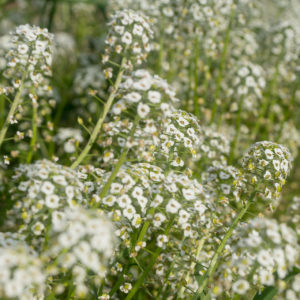 Before we became vegan, when I started the program, I was interested in farming chickens, goats, Japanese quail. What really got me, when watching Cowspiracy, was how inefficiently feed is converted from plants to animals, and then to you. So that all went out the window right away. I knew people who had ducks and said that they don’t hurt their ducks and that the ducks are really happy. They asked, “you wouldn’t take eggs from me even if I gave them to you for free?” I told them no, because it is a waste of food. It’s inherently wasteful. You are losing calories as they are filtered through this animal and then ultimately to you.
Before we became vegan, when I started the program, I was interested in farming chickens, goats, Japanese quail. What really got me, when watching Cowspiracy, was how inefficiently feed is converted from plants to animals, and then to you. So that all went out the window right away. I knew people who had ducks and said that they don’t hurt their ducks and that the ducks are really happy. They asked, “you wouldn’t take eggs from me even if I gave them to you for free?” I told them no, because it is a waste of food. It’s inherently wasteful. You are losing calories as they are filtered through this animal and then ultimately to you.
For me being a vegan was exclusively about the environment, but as soon as I knew I was completely clear of animals – I wasn’t eating eggs, drinking milk, buying animal-based fertilizers – something happened and I started to look at animals differently. If killing animals was good for climate change, I still wouldn’t do it. That’s an entirely different issue. To me, there’s no excuse to kill an animal. It’s like killing a person.
These days, the message is that while conventional animal agriculture is bad and causes climate change, these other farmers who raise their goats and cows on small organic farms, are not only not harming the environment, they’re saving it. But you are saying is that farming animals is inefficient, regardless of the type of farm?
Yes. It’s difficult to be a farmer around people who farm animals this way. I have to walk a fine line between biting my tongue and saying what I think. In “Modern Savages”, Dr. McWilliams writes about the ethical inconsistencies of the small farm movement. You and I know that they are still killing animals so it is unethical and barbaric, but you can even make the argument that it is worse for the environment because it’s less efficient. At least factory farms are more efficient, they’re just so harmful to the environment because of the huge amount of meat they produce. If all of this meat were produced on small farms, there would be no land left.
People are advocating to go back to what existed before industrial agriculture, when only the rich could afford meat. It doesn’t make sense to advocate to go back to that without also proposing to eat meat once a week, for example. You can’t have it both ways.
It’s messed up.
When you started talking about going veganic, were you afraid it couldn’t be done?
Yes, because people told me it couldn’t be done. They didn’t know anybody who was doing it. But a couple people I respect a lot told me otherwise. Dr. Eric Brennan runs USDA trials that are far ahead of the curve in terms of sustainability. I asked him if the soil microbes would be alright, because the idea was that the soil needs manure and wouldn’t survive without it.
The way plants get the nutrients they need at the time they need them is through releasing sugars from their roots that feed a specific soil microbe that will release whatever nutrients they need. If a plant needs nitrogen, it will release a specific sugar into the soil for a specific microbe to process the nitrogen so that they can absorb it. They send out an APB that they need nitrogen, and that microbe has to be there in order to break down the nitrogen. I heard several times that you need manure. People are obsessed with manure! I asked Dr. Eric Brennan because I knew that he used veganic compost and he is really interested in extracting nutrients from plants and using them as a fertilizer. He told me that the microbes are more resilient than what people give them credit for and that they’ll be fine. And the microbes on our land are fine, he was right.
Can you illustrate some differences between an organic farm and your farm?
The obvious difference is fertility, an organic farm will use manure, blood meal, bone meal, feather meal and fish emulsion.
What do you use instead?
We just had our first harvest of romaine lettuce. Before we built the beds we mixed in mustard meal. I got my soil test back and we were still short in some nutrients, but in the madness of farming for the first year, I wasn’t able to fertilize the lettuce. What I would have used is a liquid fertilizer that is locally made from fermented grain. I’ve heard good things about it but I didn’t get a chance to use it. Even though we didn’t fertilize, these heads of romaine were by far the best from all the other farmers on the whole property. El Niño caused issues with fungus on crops but our lettuce was so big we could pull off the outer leaves that had the fungus, and the inside of the romaine was as big as everyone else’s whole head. It’s inexplicable, I don’t know how we did it.
There are many alternatives for fertilizers. That’s the low-hanging fruit that connects organic to animal agriculture, but one thing that I’ve put a lot of thought into are the other animals on the farm.
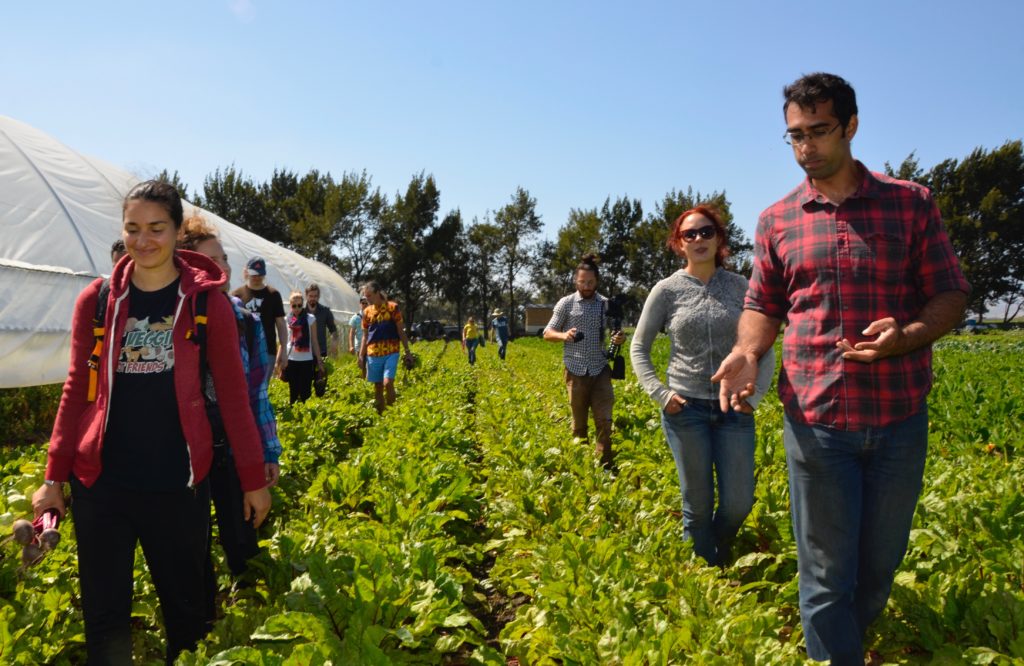
We have two gophers, Gertrude and Gunther. The conventional knowledge is to kill the gophers and I used to be very proud of how good I was at killing them. In class we would get extra credit for every gopher caught on the field. Then all of a sudden, I am farming veganically and understand what an animal is and what rights they have. And all I’ve been taught is to kill gophers or the alternative is for them to destroy my farm.
I told myself “I can’t kill them, so I’m just going to wait until I figure something out”. For a month, I didn’t do anything. The gopher hills and burrows started to form and become more elaborate and I realized that he wasn’t eating anything. I couldn’t figure it out; what was he eating to survive? We had some cover crop, a grass that we had left near the tomatoes, and he was eating that. I remembered reading that gophers don’t actually like vegetables, they prefer native plants. We pull out all the native plants and all that is left are our vegetables, and then we kill the gophers when we give them no other option. I started to do research and found that gophers are a big problem with alfalfa and another cover crop, so I’ve planted a row of that. So far they have only eaten one lettuce head and have cost me one dollar, and my conscience is clean. That’s my farm, it won’t translate to a non-vegan farmer. But there are other reasons that non-vegan farmers should farm veganically.
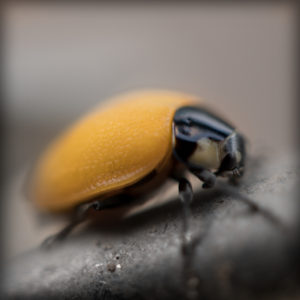 Another thing that sets our farm apart is that I am more excited about the bugs than the vegetables. We plant a lot of native plants, they are likely better for the farm and definitely better for the general ecology. We don’t release insects, we only try to attract them. What we do is plant flowers, especially native flowers, to attract predatory insects.
Another thing that sets our farm apart is that I am more excited about the bugs than the vegetables. We plant a lot of native plants, they are likely better for the farm and definitely better for the general ecology. We don’t release insects, we only try to attract them. What we do is plant flowers, especially native flowers, to attract predatory insects.
What type of research should be done on veganic farming, what data do you think would be interesting?
At this point even the most basic data would be very illuminating. I personally have no idea what the difference is in carbon footprint between veganic and organic, even just strictly in regards to fertility. If you look at inputs for fertility, veganic farms definitely have a smaller carbon footprint but it would be good to quantify that difference.
What I really care about is how many animals are not going into my field. I care about those individual animals. That can also be illuminating data for non-vegans because it highlights how many resources are being used to produce those animals. People might not care about the animals themselves but they do care about how it affects them. Scarcity is scarcity. Showing how many animals are going into a field indicates how much water and how many calories are wasted.
I also want to know how much money animal agriculture makes off of its bi-products, because I think it’s a lot. And how much money would it cost them to dispose of that waste if nobody were buying it? I think they’ll always have a market for it but if farms start going veganic it will take money out of the pockets of this industry.
What would your sales pitch be to vegans who don’t care about veganic farming, and to non-vegans who want to support sustainable food systems?
If you are a vegan for any reason other than health, you care about processes. Whether it’s that the process is wasteful and has a huge impact on the environment or whether it’s because it’s devastating to animals and they are individuals who are stuck in the system. Vegans know that their money is funding big processes, so they should understand that their money is still going to the animal agriculture industry, they have not fully severed ties. When they buy organic, their money is going into the pocket of the farmer, which is not a bad thing, but then the farmer takes it and gives it back to this industry.
For non-vegans, I would say that our farm is fully disconnected from that corporate factory farm system. It doesn’t matter how small a farm is, if they’re buying blood meal, bone meal, fish emulsion, they still are intimately connected to these companies. On our website I talk about animal agriculture and its environmental impact. I could give them all of the statistics, but I couldn’t then convert it to the exact difference between my farm and an organic farm.
To your knowledge, what percentage of organic farms in California don’t buy factory farm bi-products and only use manure from their cows?
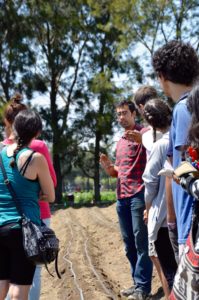
It’s definitely a tiny minority. Because of the way fertility works, you can apply manure to a field but it won’t get you through the whole year. You’re left with a nutrient deficiency about half-way through the year. Depending on the farm, many buy chicken manure and pour it over the soil. Most farms can’t get all of their nutrients without supplementing with external inputs, and if comes in a bag it’s probably from factory farms.*
What response do you get these days from your former classmates?
It’s very positive, the CSA especially has garnered a lot of excitement. Maybe because of the novelty, maybe because it’s financially lucrative. One of our friends has made his plot veganic in order to partner with us in the CSA, which doubled the acreage. Another friend has devoted a portion of his plot to farming veganically, also to participate in the CSA. He’s also started researching and experimenting with veganic, and he may be the one to come up with the data I mentioned.
When I stop asking people for their opinions and just tell them that I’m a veganic farmer and that it’s working great, it changes the tone. People are supportive.
How would you present Lazy Millennial Farms?
We are just first year farmers on a veganic farm. We are trying to get out of the corporate life and do something meaningful. We want to farm as ethically and sustainably as possible.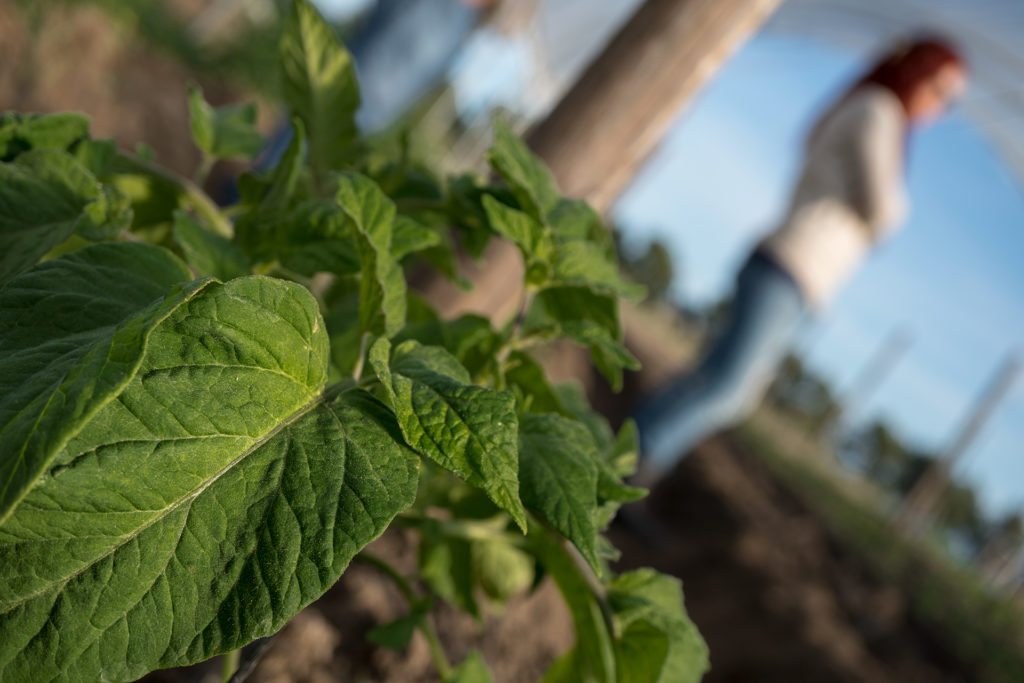
Photo Credits: Banner and photos 1, 2, 4, and 6 by Isabella La Rocca; Photos 3 and 5 by Bethany Morgan.
*Edited

